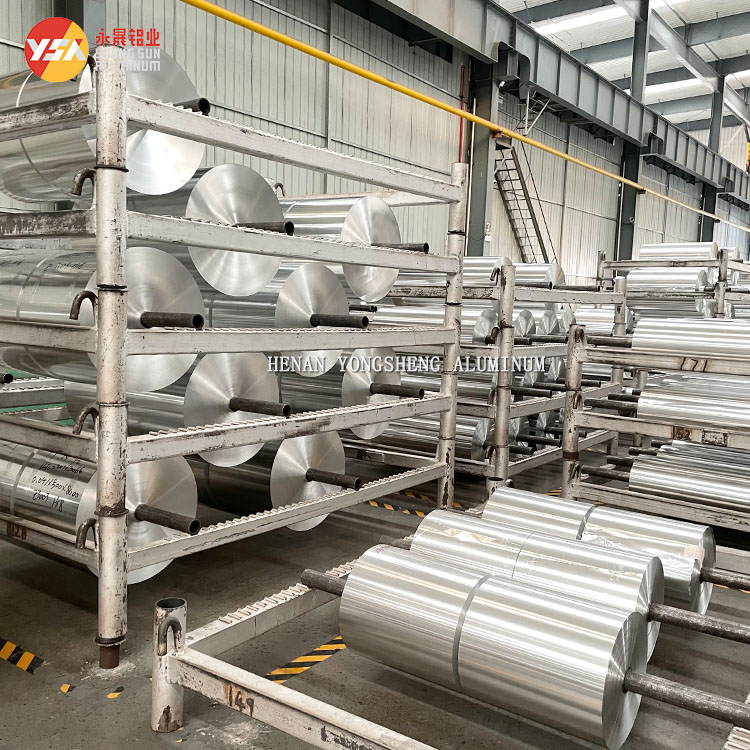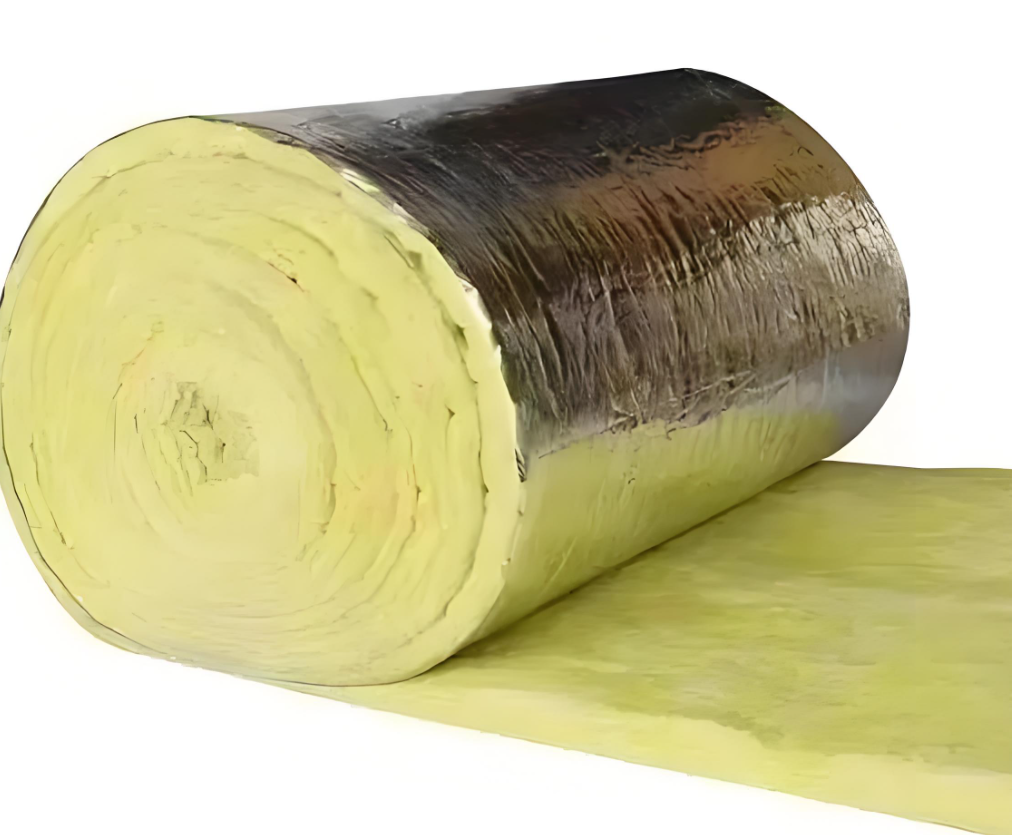Glass wool is a widely used insulation material, popular in construction, industrial piping, and HVAC systems. One of the key components in the production of glass wool is aluminum foil, which is often used as a facing layer. The choice of aluminum foil in glass wool manufacturing is due to several significant advantages it provides. Here are the main reasons why aluminum foil is selected as a raw material for glass wool.
Excellent Thermal Insulation Properties
Aluminum foil has a very low thermal conductivity, making it an effective barrier against heat transfer. When used as a facing layer on glass wool, it significantly enhances the material’s overall thermal insulation performance, reducing heat loss. This is particularly beneficial in high-temperature environments where maintaining stable internal temperatures is crucial.

Superior Moisture Resistance
Aluminum foil offers excellent moisture resistance, effectively preventing the ingress of water vapor and humidity. This protective barrier helps maintain the integrity and performance of the glass wool, preventing it from becoming damp and losing its insulating properties. In humid environments, the moisture-resistant properties of aluminum foil are especially valuable, extending the lifespan of the insulation.
Outstanding Fire Resistance
As a non-combustible material, aluminum foil does not burn or emit harmful gases when exposed to high temperatures. This fire-resistant characteristic enhances the overall fire safety of glass wool insulation, reducing the risk of fire spread in buildings and industrial applications. The inclusion of an aluminum foil layer is essential for ensuring safety in fire-prone environments.
Enhanced Mechanical Strength
The addition of aluminum foil to glass wool improves its mechanical strength and tear resistance. This makes the insulation more durable and less prone to damage during transportation, installation, and use. The foil layer provides extra protection, minimizing the risk of physical damage and improving the material’s overall durability.
Aesthetic Appeal and Reflective Properties
Aluminum foil has a smooth, shiny surface with a metallic luster, giving the glass wool an attractive appearance. Its high reflectivity also allows it to reflect radiant heat, further enhancing the insulation’s thermal performance. In applications such as HVAC systems, the reflective properties of aluminum foil can play a crucial role in reducing heat transfer.

Excellent Chemical Stability
Aluminum foil is highly resistant to oxidation and corrosion, maintaining its stability in various environmental conditions. This chemical stability ensures that the foil layer protects the glass wool from external chemical agents, prolonging the insulation’s effective lifespan and performance.
結論
Aluminum foil is an ideal choice for use as a facing layer in glass wool insulation due to its exceptional thermal insulation, moisture resistance, fire resistance, mechanical strength, aesthetic appeal, and chemical stability. These advantages not only enhance the overall performance of glass wool but also ensure its reliability and durability in a wide range of applications. As technology advances and application demands increase, the use of aluminum foil in glass wool manufacturing is expected to grow, providing even greater benefits in insulation technology.


